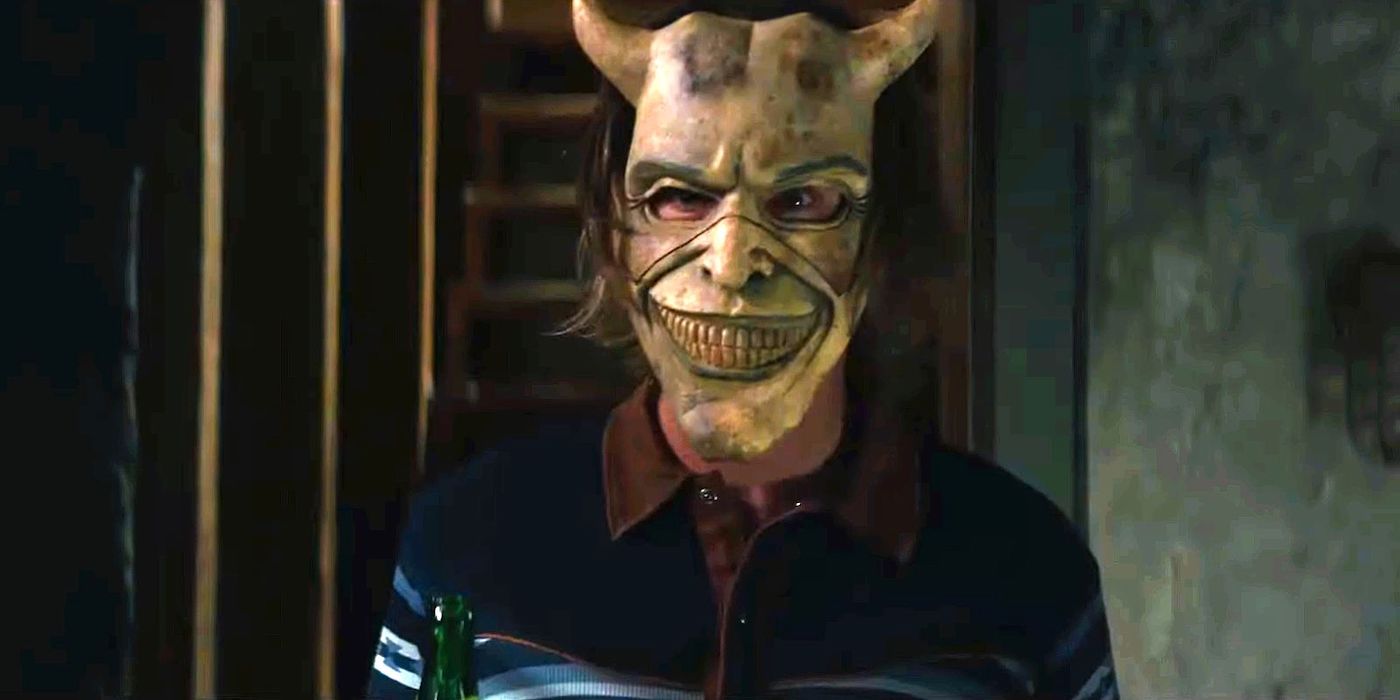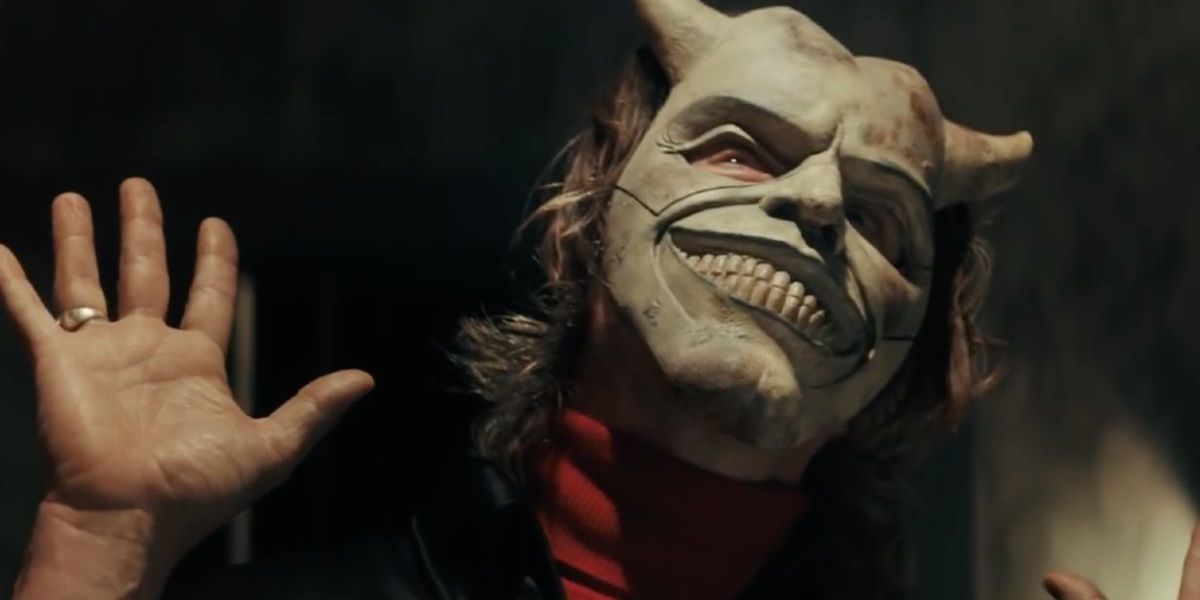Black Phone is a thrilling new horror film from director Scott Derrickson that stars Ethan Hawke as the menacing Grabber, a character who thrives on taking small boys into his terrifying basement and toying with them until he strikes. It's a hard film to watch, but one that ultimately has an ending that leaves the audience cheering for Finney (Mason Thames). Talking with The Hollywood Reporter, Derrickson elaborated on some of the decisions that went into certain choices — such as the scene where Madeleine McGraw's Gwen is beaten by her and Finney's father — but he also gave some insight into a change to the ending of the film.
In Black Phone, there is a disconnected black phone on the wall of the basement where the Grabber keeps his victims. He keeps telling Finney it doesn't work and yet Finney hears it ringing with the voices of the Grabber's previous victims. For Finney, his best friend Robin (Miguel Cazarez Mora) is one of them. We get to meet Robin in the beginning of the movie as he inspires Finney to fight back against bullies, but we don't get to really see him past that point since the Grabber takes him. And that was something that Derrickson realized he would need to remedy with the ending. Especially since Finney was seeing some of the Grabber's previous victims in the shadows as he was speaking to them.
“In the script, Robin wasn’t in the room. It was just a phone call,” Derrickson said. “A day or two before we shot that … it suddenly hit me out of nowhere. I was like, ‘Oh, the audience wants to see that kid again. We got to see him again. It’s not going feel right if we don’t see him again.’ I was like, ‘Where’s that kid?’ and they were like, ‘We just flew him home.’ I was like, ‘Get him back. You got to fly him back.'”
This move was the right one, in my opinion, because it ultimately led to a powerful ending that I have constantly thought about since seeing the film. But with the new approach to the ending, Derrickson also talked about how he really didn't have a set-up for the shot in mind on the day of filming and approached it on the fly. “I end up doing it all in one shot,” Derrickson said. “I think a good director always has an antenna up trying to hear what this movie really wants to be. If you do that, you can sometimes make decisions that are bigger than you.”
The Black Phone is frightening, upsetting, but also Derrickson at his absolute best. It is playing in theaters now.


